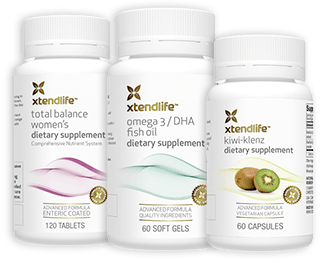What are the B Complex Vitamins and why do you need them?
Many visitors ask us what B complex vitamins are and why they are so important to our overall health and wellness. This article will break it all down for you so you'll know exactly what they are and why you need to incorporate them into your diet.
What They Are and What They Do
The B-complex vitamins are:
· thiamine (B1) – needed for nerve function, cellular metabolism, converting carbs to energy and producing DNA
· riboflavin (B2) – needed to convert fats, carbs and protein to energy; allows the body to burn stored fat
· niacin (B3) – needed for the same reasons as riboflavin and also to metabolize alcohol
· pantothenic acid (B5) – needed for the same reasons as niacin and riboflavin and also for the production of hormones and neurotransmitters like the feel-good mood-regulator serotonin
· pyridoxine (B6) – mainly needed to convert protein to energy and with B5 to produce neurotransmitters
· biotin (B7) – like riboflavin and niacin but also needed for processing cholesterol
· folic acid (B9) – needed for the production of red blood cells and for normal cell division, especially during pregnancy and the rapid growth of infancy
· cobalamin (B12) – like many of the other B-vitamins and also needed to convert amino acids to complex proteins such as those found in muscles
Because many of these vitamins are needed for similar reasons, you might think you can get by with just one, but each has a unique role and the body functions best when all are present in sufficient quantities.
Benefits of B Vitamin Complex Supplements
While these common vitamins are found in a variety of foods, increasing the amount you get every day by taking a supplement could improve your health.
In general, the B-complex vitamins are energy-boosters. They can increase your energy levels and make you more alert. The supplements may help with weight loss because of the role they play in burning stored fat and metabolizing foods.
Specific benefits associated with the individual vitamins may include the following:
Thiamine supplements are commonly recommended for people with diabetes because they tend to have thiamine deficiencies. Since the nutrient is needed for normal nerve function, a lack of it may increase the risk of diabetes-related complications involving the nerves.
In general, thiamine deficiencies can cause nerve damage, especially to the tiny nerves of the eye. Nerve damage in the brain can lead to cognitive impairments, such as memory loss. Supplementation could make you feel more alert and improve your memory. Some of the brain-boosting supplements on the market contain thiamine and other B-complex vitamins.
Riboflavin is used to treat jaundice and migraine headaches. It may boost immune system strength by deactivating viruses and other pathogens. Studies suggest it strengthens collagen fibers found in the skin, eyes, veins and many other parts of the body.
Severe riboflavin deficiency is rarely seen in developed countries, but mild deficiency is quite common according to a study conducted in 2003. Millions of Americans were estimated to have sluggish metabolism due to mild riboflavin deficiency.
Niacin supplementation may reduce the risk of heart disease and stroke through a number of actions including a reduction of blood cholesterol levels. The B-vitamin has been shown to raise good HDL cholesterol levels while lowering bad LDL levels.
Niacin deficiency can cause irritability, difficulty concentrating, anxiety, fatigue and depression. Severe, untreated cases, lead to pellegra and eventually death. Mild deficiencies cause slow metabolism and intolerance to cold.
Vitamin B5 supplements, like niacin, may help to reduce the risk of heart disease and stroke by decreasing blood cholesterol levels. Diabetics may benefit more from a combination of B5 and thiamine, as opposed to thiamine alone, according to at least one study. Supplementation may also help with skin problems and slow wound healing.
B5 deficiency causes symptoms like those of niacin and riboflavin. Low blood sugar, muscle cramps and frequent viral infections due to a weakened immune system are other symptoms of B5 deficiency.
Vitamin B6 is useful for morning sickness and nausea from other causes. Supplementation may reduce the risk of Parkinson's disease according to some studies. In combination with magnesium, B6 has proven to benefit ADD and ADHD. The supplement may reduce the risk of colon cancer, as high blood levels of the nutrient are inversely associated with colon cancer risk. There is another possible benefit for depression, since the nutrient is needed to produce serotonin, the target for many anti-depressant drugs.
B6 deficiency begins with skin irritations, difficulty sleeping and confusion. Mild deficiency causes the same metabolic sluggishness as lack of riboflavin.
Biotin is used primarily to treat metabolic disorders. Supplementation may boost metabolism and help with weight loss.
Biotin deficiencies lead to skin irritation and hair loss, as well as the other symptoms caused by B vitamin deficiencies. Nearly all pregnant women have low biotin levels and should take a supplement containing the nutrient.
Folic Acid supplementation is essential for women who wish to become pregnant. A lack of folic acid during the first trimester of pregnancy can result in birth defects like spina bifida. B-complex vitamins are a major component of prenatal vitamins, but a woman might not know she is pregnant when formation of the spine begins. This is why all women of child-bearing age should take a supplement.
Lack of folic acid in adulthood causes symptoms like those of the other B-vitamins. Supplementation may decrease the risk of depression, stroke and some types of cancer, as well as age-related macular degeneration.
Vitamin B12 is used for anemia, Alzheimer's disease, weak immune system and allergies. Vegetarians need some type of B12 supplementation, as they typically don't get enough in their diet. The supplement is also recommended for boosting energy levels and weight-loss.
Symptoms of deficiency can occur suddenly, as the body uses and disposes of the nutrient very quickly. Initial symptoms may include muscle weakness, fatigue, poor memory and depression.
Are B Vitamins Enough or Do You Need More?
Most experts recommend a more comprehensive supplement regimen, one that includes a variety of nutrients to address short-comings in the typical modern diet.
A good multi-nutritional supplement that includes all of the B-complex vitamins along with other important vitamins, minerals, herbal extracts and other nutrients is more cost-effective and reduces the need to take a number of different pills every day.
Read more on our HSG nutritional supplements page or return to the HSG home
Resources...
Search our site...
PREMIUM SUPPLEMENTS
The most advanced herbal supplements on the market
BULK HERBS AND TEAS
Need bulk herbs, teas, supplements and capsules?

